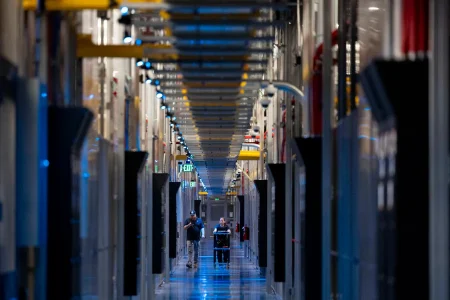The advent of Artificial Intelligence (AI) has revolutionized the landscape of business automation and decision-making, transforming industries and altering the way businesses operate. AI is not merely a tool; it is a transformative force that reimagines how we engage with the world around us. By integrating AI into every aspect of business, organizations can enhance efficiency, improve decision-making, and unlock opportunities for growth. This shift is evident in the way companies are using AI-powered software to automate routine tasks, enabling faster execution and better resource allocation. Additionally, AI allows businesses to make data-driven, forward-thinking decisions that were previously unimaginable, such as personalized marketing strategies and predictive analytics.
The impact of AI on business automation and decision-making can be summarized as a comprehensive transformation. On one hand, AI empowers businesses to address complex challenges with unprecedented speed and accuracy. From optimizing supply chain processes to enhancing customer service, AI-driven solutions are simplifying operations and improving traditionally slow and error-prone tasks. For instance, AI-powered chatbots can address customer service queries where humans would struggle, while predictive analytics allows businesses to anticipate trends and uncertainties in real time. These advancements are driving innovation and ensuring that organizations remain competitive in a rapidly changing market.
However, the rapid pace of AI adoption is also accompanied by significant challenges. One of the most notable concerns is the potential for job displacement. As AI systems automate repetitive tasks, the creation of skilled AI specialists is becoming increasingly difficult and costly. Additionally, businesses must navigate the ethical implications of AI decisions, which raises significant questions about privacy, transparency, and accountability. terceraries, such as unions, also respond with calls for greater regulation and oversight to protect workers and ensure fair employment practices.
Despite these challenges, the impact of AI on business performance is undeniable. It not only enhances operational efficiency but also fosters innovation and sustainability. For instance, AI-powered decision-making tools can help companies reduce reliance on human judgment, driving smarter operations and more sustainable practices. Moreover, AI is expected to play a key role in reshaping industries such as retail, healthcare, and education, where human creativity and cultural insights are invaluable. However, businesses must be prepared to balance the benefits of AI with the risks associated with artificial intelligence.
The future of AI in business is promising but uncertain. As the AI industry continues to develop, so too will the strategies and policies that shape its role in organizations. Companies must adopt a strategic approach, integrating AI into their core business models while addressing potential ethical and social challenges. Additionally, businesses will need to establish guidelines to ensure that AI is used responsibly and in alignment with company values and regulatory standards. In doing so, they can maximize the potential of AI to drive innovation and achieve competitive advantages.
In conclusion, the impact of AI on business automation and decision-making is profound, offering opportunities for growth, innovation, and efficiency. However, businesses must approach this transformation with caution, addressing the associated challenges such as job displacement, ethical dilemmas, and risks to employee well-being. By embracing AI while embracing learning and continuous improvement, organizations can harness the full potential of this transformative technology to achieve their strategic goals. AI’s role in future business Prediction remains one of the most exciting and enduring aspects of contemporary society.














